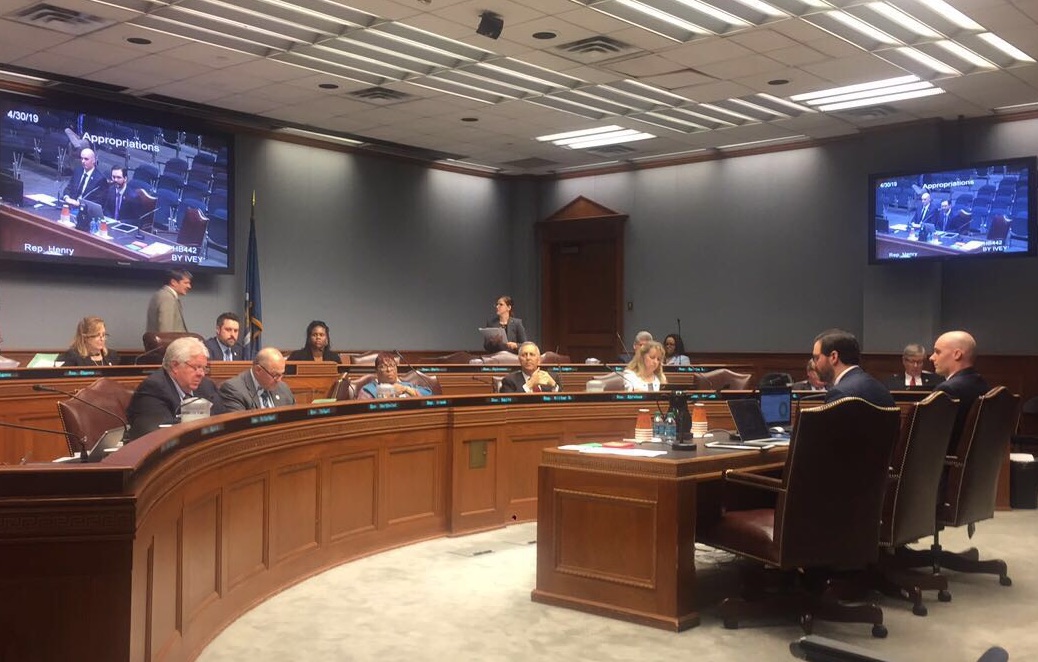By Sheridan Wall
LSU Manship School News Service
BATON ROUGE — Lawmakers are looking for ways to train more information-technology experts and bolster the state’s cyber defenses.
Gov. John Bel Edwards, a Democrat running for re-election, has promoted the state’s need to build an IT and cybersecurity infrastructure, and the House Appropriations Committee considered bills this week to help achieve this goal.
The committee advanced a proposal by Rep. Mark Abraham, R-Lake Charles, to create the Louisiana Cybersecurity Talent Initiative Fund. If approved by the full Legislature, it would appropriate more money for degree and certificate programs related to cybersecurity and information technology.
“Cybersecurity is the new frontier,” Abraham said. “For once, can Louisiana be on the cutting edge of something new?”
Programs related to cybersecurity, including undergraduate, graduate and associate degree programs, already exist at universities like Grambling, Tulane, Louisiana Tech, University of New Orleans and at Bossier Parish Community College.
Jim Henderson, president of the University of Louisiana system, and Les Guice, president of Louisiana Tech, spoke in support of the proposal.
Several cybersecurity and information technology companies are located in Monroe, Baton Rouge, New Orleans, Ruston, Lafayette and Bossier. In addition, state universities have established technology development programs at institutions like the Cyber Innovations Center, Louisiana Tech Enterprise Campus, ULL Research Park and UNO Research Park.
Abraham fears that Louisiana is a potential target for cyber attacks due to its large port system and its location at the mouth of Mississippi River.
Another Republican, Rep. Barry Ivey of Baton Rouge, proposed a constitutional amendment to help build the state’s IT infrastructure. Ivey’s amendment would establish the State Cybersecurity and Information Technology Fund to address growing vulnerabilities in the state’s technology system.
Ivey’s plan would cost about $34 million annually, starting in the 2020-2021 fiscal year.
“We can complain about how bad things are or how old our stuff is, but the silver lining is that we can actually create one of the most advanced, sophisticated, secure systems for operating state government compared to every other state in the nation,” Ivey said.
Ivey’s amendment would divert the money in increments from revenues generated in the bond security redemption fund.
Rep. Rick Edmonds, R-Baton Rouge, questioned Ivey about the funding specifics. Ivey voluntarily deferred the bill for discussion after the governor’s budget has been solidified.
When he ran for secretary of state last year, Edmonds campaigned on enhancing cybersecurity measures to prevent voter fraud.
Edmonds and others in that race questioned the eventual winner, Kyle Ardoin, about his oversight of the state’s voting procedures.
Edwards created a cybersecurity commission in 2017. He also traveled to Israel to negotiate a partnership between Stephenson Technologies Corporation, LSU’s applied research center and Israel-based Check Point Software Technologies.
“To the governor’s credit,” Ivey said, “he’s certainly led the charge, in my opinion, on bringing the issue to the forefront at the state level and also participatory at the national level as well.”.

